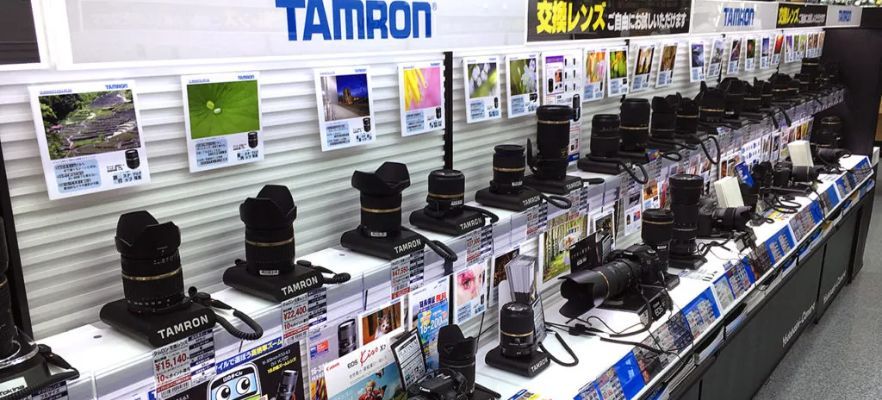How to Sell Japanese Products Abroad: A Strategic Guide for Global Growth
By Macy -30/10/2025 UTC.
Japan has long been recognised for manufacturing excellence, trusted brands, and high-quality consumer goods. As domestic markets slow, more Japanese companies are looking outward—choosing to sell Japanese products abroad as a key growth strategy. Whether you aim to sell Japanese products worldwide, launch a store to sell Japanese products online overseas, or tap into the booming cross-border market, this article will walk you through the why, how and the tools you need to succeed. We’ll also cover how Ezbuy Japan can act as your global partner in this journey.
1. Why Sell Japanese Products Abroad?
The concept of overseas sales from Japan (exports, cross-border e-commerce, international distribution) has become a major focus for Japanese businesses. According to Stripe’s recent resource, Japan’s domestic market is facing demographic headwinds—declining birth rate and an aging population—so the appeal of international markets is stronger than ever.
Here are several compelling reasons:
- Japanese products enjoy a strong reputation for quality, reliability and craftsmanship abroad.
- Currency fluctuations, especially a weaker yen, enhance price competitiveness for Japanese goods overseas.
- Global consumers are increasingly buying online across borders, giving Japanese brands access to new demand channels.
Hence, for any Japanese merchant or brand, the question isn’t if to sell internationally—but how to do it efficiently and profitably.

2. Major Hurdles in Overseas Sales from Japan
Despite the high demand, executing overseas sales from Japan is notoriously complex due to three major barriers: logistics, compliance, and language.
2.1. Logistics & Fulfillment Complexity
The largest obstacle is getting the product from the Japanese seller to the international customer. Domestic Japanese sellers rarely ship abroad, meaning every export shipment must be handled by an intermediary.
- High International Shipping Costs: Large, bulky, or heavy products (such as musical instruments or electronics) incur substantial dimensional weight charges, requiring specialized packaging and carrier negotiations.
- Customs and Compliance: Every shipment crossing borders requires accurate HS codes, customs declarations, and compliance with the import regulations (e.g., VAT, GST, duties) of the destination country. Managing this manually for global sales channels (like eBay or Shopify) is impractical and prone to errors.
- Consolidation Requirements: To make shipping economical, sellers need a warehouse in Japan that can hold multiple purchases from different domestic suppliers and consolidate them into one cost-saving package.
2.2. Payment and Tax Compliance
Managing finances across different markets requires advanced solutions (as highlighted by global payment leaders like Stripe):
- Multi-Currency Handling: Sellers must accept payments in various currencies (USD, EUR, AUD, etc.) while minimizing currency conversion fees and fluctuations.
- Tax Remittance: Complying with diverse international tax laws (e.g., calculating and remitting VAT/GST to European or Australian customers) is mandatory for D2C operations. Failure to do so exposes the seller to legal risks.
- Payment Security: Cross-border e-commerce carries a higher risk of fraud and chargebacks, demanding robust payment gateway security and customer verification procedures.
2.3. Sourcing and Language Barriers
Sourcing products from Japanese auction sites (JDirectItems Auction) or domestic marketplaces (Mercari) requires fluency in Japanese, as these platforms and their sellers rarely support English communication.
>>> Read more: Reliable Tax-Refund Purchasing Service in Japan for International Customers and Businesses
3. Strategic Solutions for Selling Japanese Products Online Overseas

Successful sellers use integrated technology and logistics to streamline operations and overcome the hurdles detailed above.
3.1. Choosing the Right Sales Channel
- Global Marketplaces (eBay, Amazon Global): Offer built-in customer bases and simplified payment processing, but sellers must manage their own fulfillment pipeline from Japan.
- Direct-to-Consumer (D2C) Websites (Shopify): Provides full brand control and better margins but requires integrating comprehensive third-party fulfillment and cross-border payment systems.
3.2. Mastering Cross-Border Payments
To minimize conversion loss and ensure compliance, sellers should integrate payment solutions that:
- Offer Local Currency Pricing: Allowing customers to see prices in their native currency boosts conversion rates.
- Handle Multi-Currency Settlements: Converting customer payments into the seller's preferred currency (e.g., USD or JPY) securely and efficiently, providing transparent FX rates.
- Provide Advanced Fraud Protection: Utilizing AI-powered systems to detect and mitigate fraudulent transactions common in global e-commerce.

4. How Ezbuy Japan Supports Japanese Businesses to Sell Abroad
For any business aiming to scale and maintain quality when selling Japanese products abroad, partnering with a specialized Japanese fulfillment provider is the definitive solution. Ezbuy Japan offers integrated services specifically designed for global export logistics.
4.1. Fulfillment Centers as Global Export Hubs
Ezbuy Japan's strategically located fulfillment centers in Japan act as the seller's secure export hub, managing inventory purchased domestically for worldwide distribution.
- Receiving and Quality Check: Inventory is received from Japanese suppliers (e.g., from Rakuten, Mercari, or wholesalers), inspected for discrepancies, and registered into the system.
- Inventory Management: Real-time inventory tracking allows sellers to monitor stock levels remotely, enabling accurate forecasting and preventing stockouts when serving global customers.
4.2. Optimized Logistics for Cost Savings and Safety
The core of Ezbuy Japan’s offering is transforming high-cost international shipping into an affordable, reliable solution.
- Consolidation: Ezbuy Japan consolidates multiple small-parcel shipments into a single, optimized international box. This feature is crucial for sellers dealing in collectibles or apparel, potentially reducing shipping costs by 30-40% per order.
- Customs Compliance: Ezbuy Japan handles all export documentation, including commercial invoices and necessary declarations, ensuring compliance for overseas sales from Japan and minimizing customs delays at the destination port.
- Customized Packaging: For fragile items like electronics or figures, specialized packing services are provided to ensure the product is protected against the rigors of international transit, safeguarding the reputation of the seller when they sell Japanese products worldwide.
4.3. Full-Cycle Support for Selling Japanese Products Online Overseas
Ezbuy Japan provides the technological and operational support needed to run a complex cross-border business:
- Multi-Language Support: Communication with Ezbuy Japan staff regarding inventory, purchasing, or shipping can be conducted in various languages (including English, Chinese, and Vietnamese), bypassing the need for fluency in Japanese for domestic coordination.
- Scalability: The infrastructure is designed to handle increasing order volumes, ensuring that a surge in demand (e.g., during seasonal anime releases or holiday spikes) does not overwhelm the fulfillment process.

>>> Read more: How to Start a Business in Japan: A Comprehensive Beginner Guide
5. Conclusion
The opportunity to sell Japanese products abroad has never been more accessible or lucrative. The global appetite for Japanese anime figures, unique JDM electronics, and high-quality Japanese skincare provides a compelling foundation for international commerce.
Success, however, hinges on logistics. By partnering with specialized Japanese fulfillment providers like Ezbuy Japan, sellers can efficiently navigate the complexities of sourcing, managing inventory, and international shipping. Utilizing such integrated solutions allows entrepreneurs to fully capitalize on the prestige of the "Made in Japan" brand and build a thriving, scalable business selling Japanese products online overseas.
Website: https://ezbuy.jp
Email: [email protected]